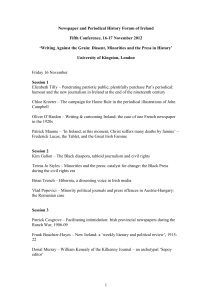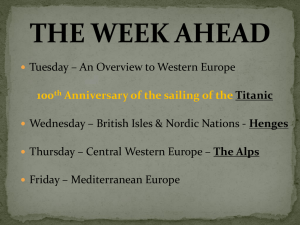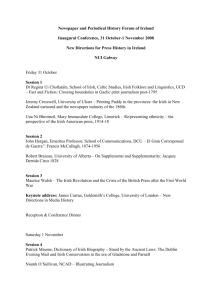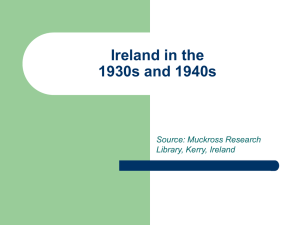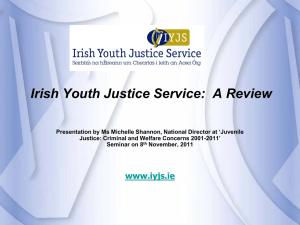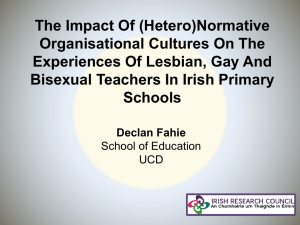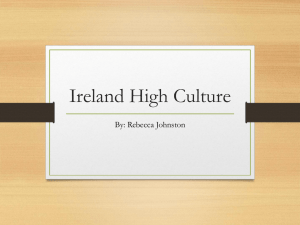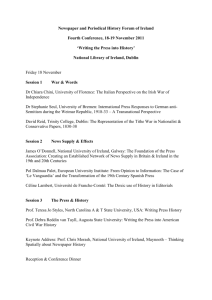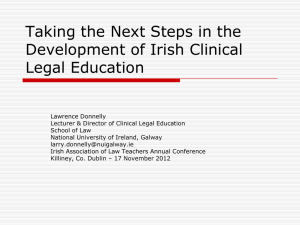New IRCHSS funding with two new postgraduate scholarships
advertisement
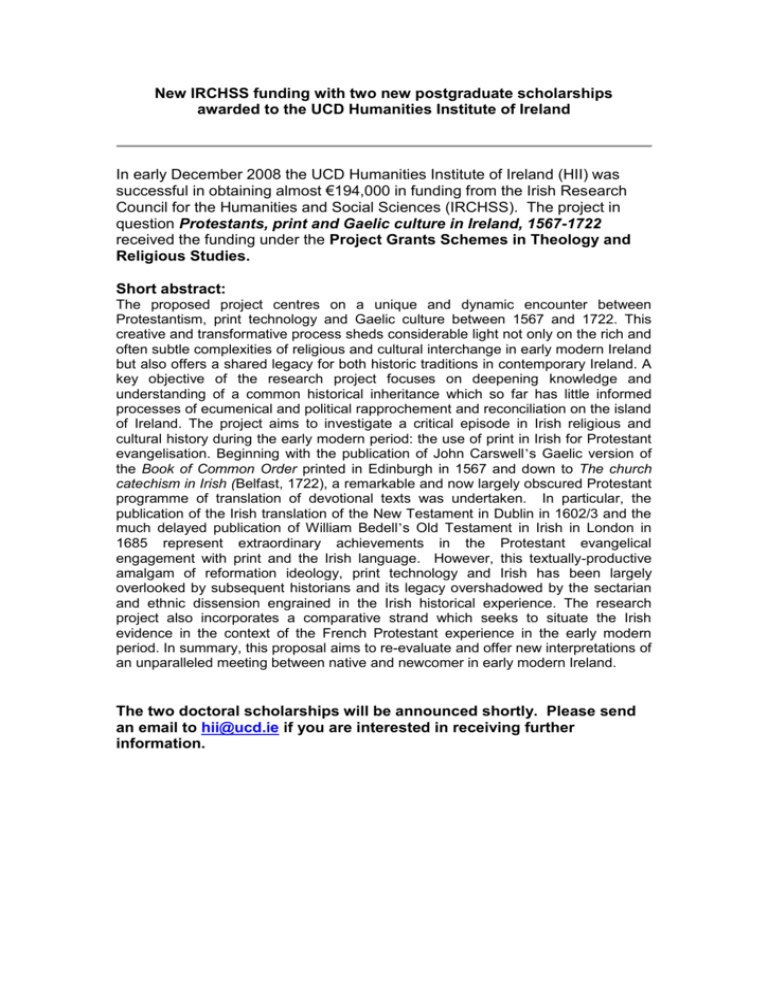
New IRCHSS funding with two new postgraduate scholarships awarded to the UCD Humanities Institute of Ireland In early December 2008 the UCD Humanities Institute of Ireland (HII) was successful in obtaining almost €194,000 in funding from the Irish Research Council for the Humanities and Social Sciences (IRCHSS). The project in question Protestants, print and Gaelic culture in Ireland, 1567-1722 received the funding under the Project Grants Schemes in Theology and Religious Studies. Short abstract: The proposed project centres on a unique and dynamic encounter between Protestantism, print technology and Gaelic culture between 1567 and 1722. This creative and transformative process sheds considerable light not only on the rich and often subtle complexities of religious and cultural interchange in early modern Ireland but also offers a shared legacy for both historic traditions in contemporary Ireland. A key objective of the research project focuses on deepening knowledge and understanding of a common historical inheritance which so far has little informed processes of ecumenical and political rapprochement and reconciliation on the island of Ireland. The project aims to investigate a critical episode in Irish religious and cultural history during the early modern period: the use of print in Irish for Protestant evangelisation. Beginning with the publication of John Carswell’s Gaelic version of the Book of Common Order printed in Edinburgh in 1567 and down to The church catechism in Irish (Belfast, 1722), a remarkable and now largely obscured Protestant programme of translation of devotional texts was undertaken. In particular, the publication of the Irish translation of the New Testament in Dublin in 1602/3 and the much delayed publication of William Bedell’s Old Testament in Irish in London in 1685 represent extraordinary achievements in the Protestant evangelical engagement with print and the Irish language. However, this textually-productive amalgam of reformation ideology, print technology and Irish has been largely overlooked by subsequent historians and its legacy overshadowed by the sectarian and ethnic dissension engrained in the Irish historical experience. The research project also incorporates a comparative strand which seeks to situate the Irish evidence in the context of the French Protestant experience in the early modern period. In summary, this proposal aims to re-evaluate and offer new interpretations of an unparalleled meeting between native and newcomer in early modern Ireland. The two doctoral scholarships will be announced shortly. Please send an email to hii@ucd.ie if you are interested in receiving further information.



